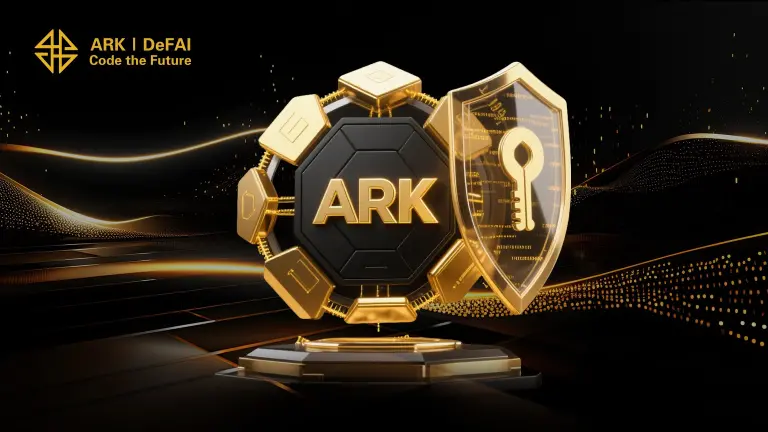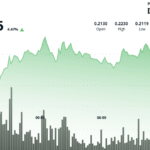The landscape of decentralized finance (DeFi) is undergoing a significant transformation, particularly in terms of what defines a "good" protocol. Historically, high yields, innovative token designs, and significant total value locked (TVL) may have been the key performance indicators. However, the downfall of several once-prominent projects has prompted a critical reevaluation of these metrics. Industry experts now emphasize that the true essence of a robust DeFi solution lies in its sustainability, trustworthiness, and adaptability, all free from total human governance.
One major challenge in building a resilient on-chain order has been an excessive dependence on human consensus. Governance inefficiencies, delays in manually adjusting economic parameters, and instability brought on by emotional responses or liquidity games contribute to a fragile ecosystem. This realization has led to the emergence of the ARK protocol, which aims to fundamentally reshape the DeFi landscape through algorithmic consensus, thereby minimizing the impact of human decisions on the protocol’s long-term prospects.
Recently, ARK has made headlines by launching its mainnet and completing a strategic financing round backed by the Morgan Crest Web3 Foundation, which has previously invested in recognized projects such as Lido Finance and FRAX Finance. This partnership has garnered renewed interest in ARK’s approach to decentralized finance.
Anchored in the belief that a good DeFi protocol must ensure asset security and sustainable yield mechanisms, ARK presents its V3 protocol system, leveraging artificial intelligence (AI) and a modular architecture. Addressing security, ARK poses three critical inquiries:
-
Is the liquidity pool (LP) locked? Non-locked liquidity pools pose a significant risk of exits by project teams, leading to "rug pulls." To counteract this, ARK locks liquidity permanently within smart contracts, eliminating withdrawal possibilities.
-
Is the minting contract open-source? An opaque contract can harbor backdoors for creating tokens without accountability. ARK ensures full transparency and verifiability in its minting process.
- Is the treasury multi-sig transparent? A single-signature treasury poses vulnerabilities to asset transfers. ARK utilizes a dual governance and multi-signature mechanism to foster decentralized governance and ensure transparent asset management.
By establishing a trust foundation based on mathematical proofs and code rather than institutional credibility, ARK seeks to build a more resilient financial framework.
From a sustainability perspective, ARK emphasizes that successful DeFi projects depend on their core protocol mechanisms rather than individuals or market hype. It challenges traditional reliance on "stablecoins" by introducing "algorithmic non-stablecoins," which balance systems through automatic regulation rather than fixed anchors. ARK addresses these challenges through its intelligent minting and market value stabilization modules, which enact dynamic economic policies and risk controls tied directly to market conditions.
The five smart architectures underpinning ARK V3—ranging from smart contract minting to governance—allow for self-regulating, evolving financial systems that reduce individual points of failure.
As ARK moves from conceptualization to implementation with its recently launched mainnet and the establishment of ARKLand—a digital ecosystem driven by AI and DeFi—users can access a variety of services, including financial advising and governance assistance. This closed-loop mechanism invites community participation through governance NFTs, ensuring that the model remains sensitive to user feedback and interaction.
With early indicators showing a liquidity pool exceeding $30 million and total staking surpassing 1.27 million ARK tokens, market sentiment towards ARK appears positive. Nonetheless, the path to full algorithmic autonomy remains complex, requiring a gradual shift towards less human intervention as AI capabilities mature.
The fundamental questions posed by ARK resonate throughout the DeFi community: Can a financial system be established that transcends human imperfections? Can governance move from a human-centered to an algorithmic-centered model? As the integration of AI and blockchain accelerates, ARK offers a pioneering framework worthy of exploration, promoting a rational approach to blockchain and urging investors to remain vigilant against potential risks inherent in virtual token engagements.







